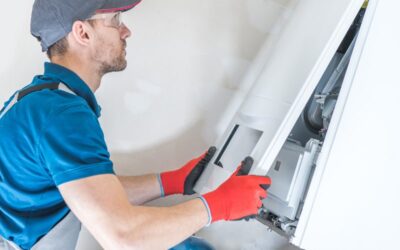Heat pumps are an excellent year-round comfort solution for homes in Clovis, NM. However, if you own one of these appliances, you may occasionally notice some troubling smells coming from it. Here are four problematic heat pump odors and what they mean:
Musty Odors
If you detect a musty odor coming from your heat pump, it indicates biological growth. Typically, spores grow on or around an indoor coil or inside your ductwork. In either case, an HVAC service technician must perform professional maintenance to correct the problem.
Fishy Smells
Your heat pump may also produce a fishy smell. In most cases, this indicates that a component in your system is overheating. The odor occurs when exposed plastic inside your heat pump melts.
The problem could originate in multiple parts of your heat pump. Loose wiring somewhere in the system often causes this issue to occur, and the same is also true for an overheating blower motor.
Rotten Egg or Sulfur Smells
Most people associate rotten egg or sulfur smells with natural gas leaks. As a result, you might be puzzled if these smells start coming from your heat pump. Nevertheless, this can occur, but the problem has nothing to do with natural gas.
Typically, rotten egg or sulfur smells from a heat pump indicate that an animal has entered your system and died there. Animals enter heat pump systems more frequently in winter, as they seek warm places to ride out the cold. Unfortunately, the inside of a heat pump can kill animals seeking shelter.
Burning Smell When Switching to Heat
Finally, you might notice a burning smell each year when you switch your heat pump into heating mode. Dust on the indoor coil burning away causes the odor, which should clear in a few minutes. If the smell doesn’t clear, you might need to call for professional repairs.
Caring for a heat pump requires specialized skills that not every HVAC company has. For heat pump repair in Clovis, NM, call I.T.S. Refrigeration & Heating, Inc. right away.
Image provided by iStock




